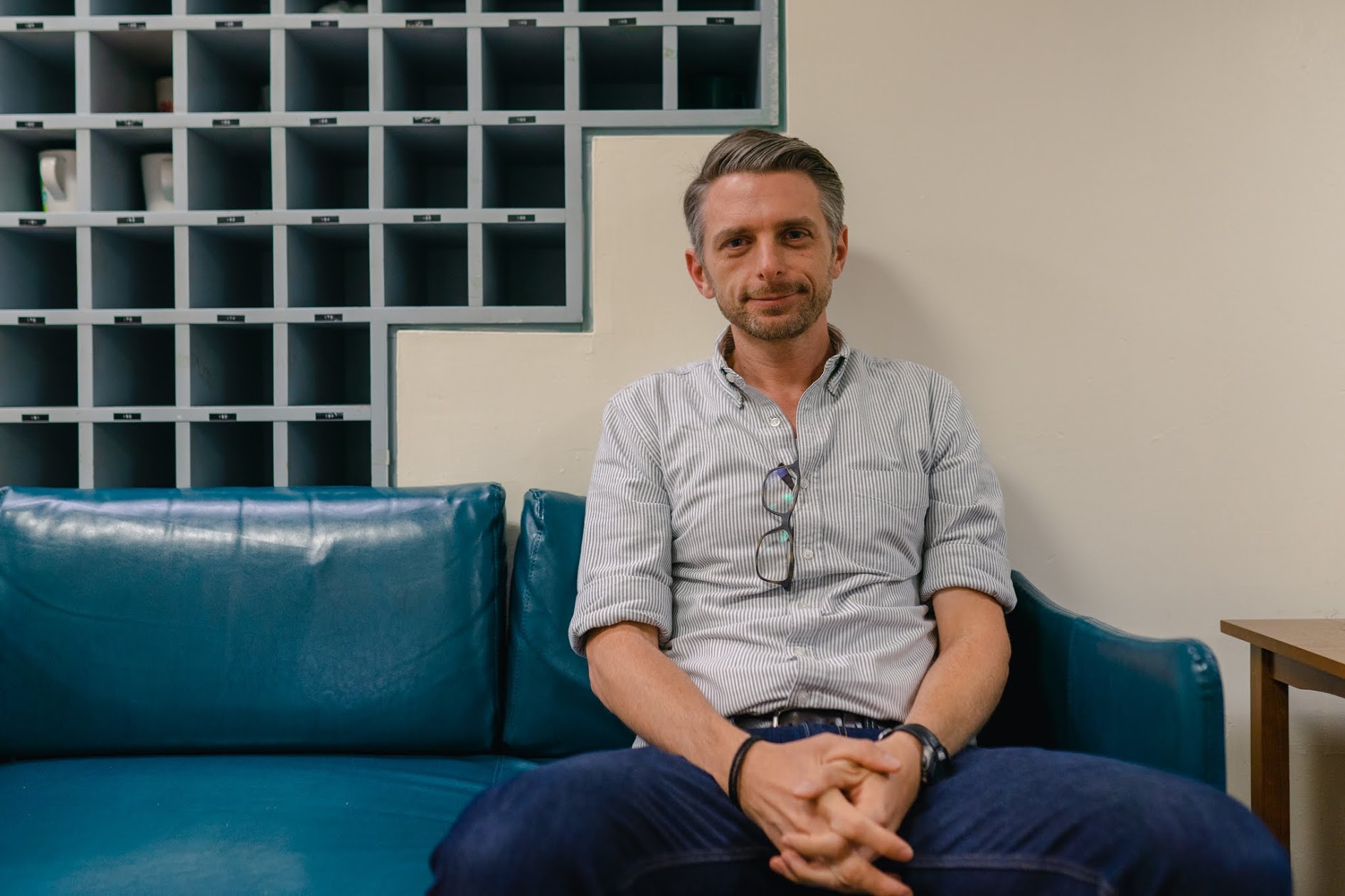Bryan Mealer is the author of The Kings of Big Spring, Muck City and co-author of the New York Times bestseller The Boy Who Harnessed the Wind. This fall, he began his studies as a first-year M.Div. student.

What were you doing before coming to Union?
I’ve been a reporter for 20 years, and a lot of my work was spent in Africa covering the war in Democratic Republic of Congo and Somalia. I roamed the continent as a reporter for the Associated Press and eventually wrote a book about the Congo War. The experience covering conflict, and all that accompanies it from death to disease, really began to reshape the way I saw the world. I began to see things through a lens of trauma, with my own second hand trauma becoming my unconscious way of seeing the world around me.
How did this trauma affect the work you were doing?
It wasn’t until the last few years that I became aware of how this trauma was affecting me. I grew up in a fundamental conservative Evangelical family in West Texas, where we were part of the Assemblies of God before moving to a charismatic pentecostal church. The sheer oppression of that lifestyle on someone trying to learn about the world left me with a lot of baggage as a young man and later adult. I moved from New York to Austin so I could work on a book about my family, which eventually became a hundred year saga that explored their lives in the West Texas oil fields. I was curious what led my family to Pentecostalism and learned more about their poverty and trauma, the effects of the Great Depression, and how attractive the message of salvation in Pentecostalism was.
Did learning more about your family’s history change your personal relationship to faith?
The process of interviewing my family made faith less of a hot potato, I could finally make space to ask my own questions. At the same time, my kids began asking me questions about God. I realized it was important for my kids to know about the Bible and these stories, but I began to debate how I would answer questions like what is God? My son plays violin and one night we went to this church for his concert. The first thing I noticed was a big rainbow flag in the front and, I’m embarrassed to say it, but I was amazed these two worlds could exist together. To find a church that was affirming, especially when my family had ostracized others for being gay.
When did you decide that seminary was the place to explore these questions?
I had considered seminary before. I have a friend in Austin who is an Episcopalian priest who also served in Iraq, he and I would run together and talk about our conservative upbringings. He had gone to seminary and shared his experiences. One night I was lying in bed and just knew, I’ve got to go to seminary. I’ve never had an experience so strong before.
I remember walking with the caravan last year, on some dusty road in Oaxaca waking up at 3 am every day. There were thousands of us walking from town to town, as kids with respiratory infections were coughing from the dust and misery in the air. I’d been in this situation before in the Congo, but I was never receptive to the sounds of people praying. I realized all these people had was God – as they fled harassment and abuse, threats against their lives, their cities burning behind them. I felt an electric presence of the Holy Spirit, this strength of knowing God was with us. I’ve never had that before, but knew in that moment it was worth fighting for.
What do you hope to answer during your time at Union?
I’m interested in pursuing journalism as ministry and developing that as my concentration. The question I’m asking in my three years here are: How can we build a moral framework around bearing witness and reporting on marginalized people? How does theology fit into the mindset of the observer?
I feel like the problem we’re facing is this machine of White Christian nationalism that’s distorting the message of Christ and how its carried out. I think the solution is clogging its wheels and leaving it to rust, but the question of how we do that is kind of like magic. I want to write stories in a way that appeals to my aunts and uncles, people who voted for politicians like these. I want to write stories about these migrants where I expose the idolatry and sheer naked hatred of the system against these people, while at the same time championing the humanity of these individuals as God’s children. The hope is that before they even see it coming, the weight of conviction is so heavy on them that they can’t deny this appeal to their faith. I don’t know if it’ll work, but it beats sitting at my desk in Austin.
